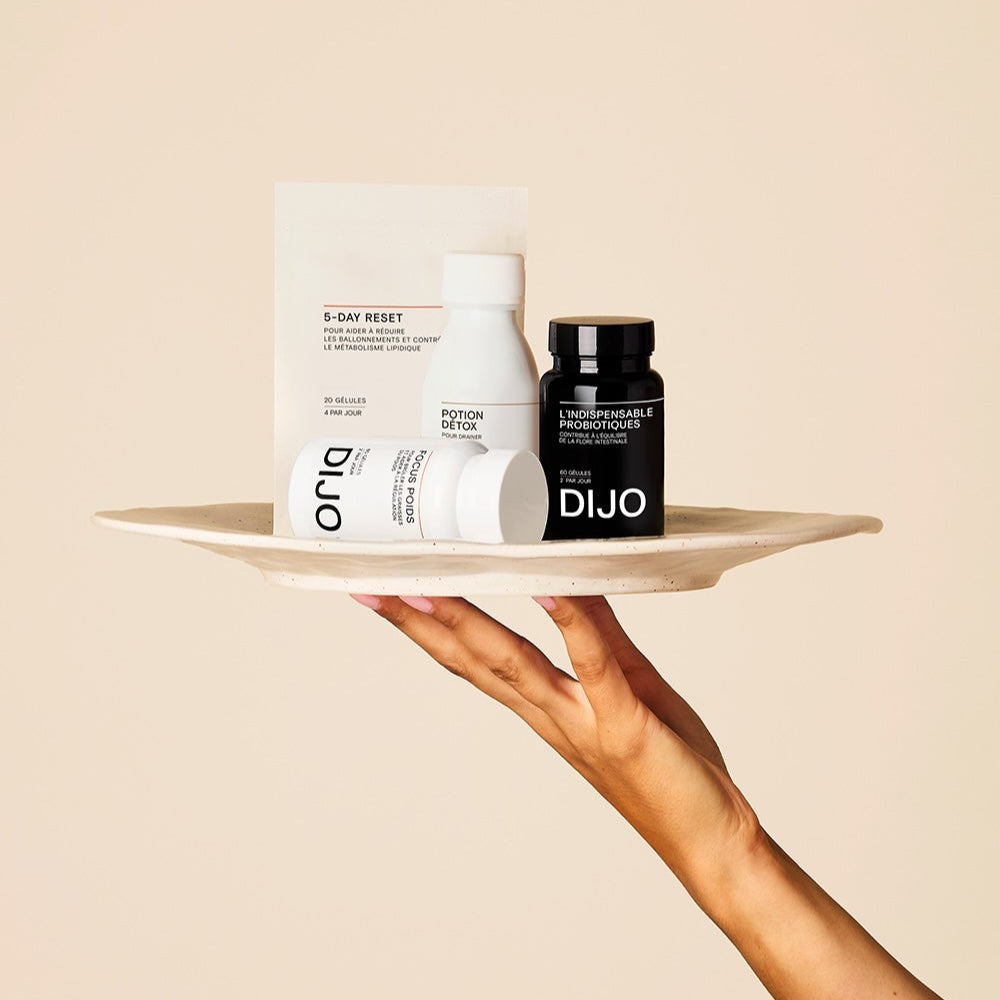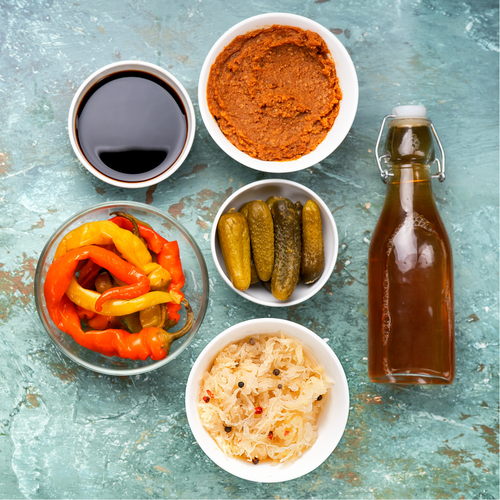It is a well-known phenomenon, we talk about winter fatigue, and in more serious cases, seasonal depression.
The causes of this phenomenon are numerous:
- Low morale can be caused by early nightfall, and drops in temperature sometimes accompanied by recurring bad weather
- Fatigue is often caused by small bacterial and viral attacks that our body defends itself against without us realizing it, by deficiencies in certain micronutrients due to our changing diet, and by an overloaded liver which is felt all the more when the seasons change.
- Reduced immunity often stems from a diet that is too fatty (albeit comforting) and not rich enough in immunity-boosting micronutrients. Since the virulence of pathogens is increased in winter, the chances of getting sick are increased, thus amplifying all the other symptoms.
For many, it's inevitable. But it's entirely possible to prepare for a more peaceful winter! Here are some tips to help you cope.
#1 - Adapt your diet accordingly
We know. Winter's primary cravings tend to center around fondues and raclettes. And we'd never tell you to avoid them, especially if they're comforting, but they shouldn't be part of a completely unbalanced winter diet. Whatever the season, maintaining macro- and micronutrient intake is essential. Even though winter means your diet will likely be a little richer, you need to keep nutritional recommendations in mind and prepare your meals wisely.
However, to enrich your diet, you can target certain micronutrient boosters and consume foods that are a source of them.
For example, certain B vitamins, such as B2 and B8, help boost macronutrient metabolism and provide an energy boost. They are very easy to find since they are present in all animal protein products.
One of the ultimate winter booster foods is royal jelly. Its richness in vitamins A and C stimulates the immune system and reduces fatigue. It also provides vitamin D, which we often lack in winter due to less sunlight. Studies tend to demonstrate a link between this vitamin and the concentrations of serotonin, the happiness hormone, in our brain, so it shouldn't be overlooked. Other minerals and antioxidants are also included in its composition, giving it immunostimulant, antiviral, and antibacterial properties, making it a great ally for getting through the winter.
As mentioned above, a suitable intake of vitamin C can boost your immunity and limit fatigue. It is very easy to reach the recommendations for this vitamin: a glass of 2 to 3 squeezed oranges will easily provide the levels you need. Other fruits are also full of it: clementines, lemons, grapefruit, kiwis, etc. However, be careful to consume these fruits during a balanced meal in macronutrients to limit blood sugar spikes. If you want to avoid this, you can turn to vegetables like broccoli and bell peppers, which are also excellent sources.
To combat stress, anxiety, nervousness, and the cold, we can turn to a little natural magnesium cure, thanks to seeds, algae, herbs, oilseeds, and cereals that are full of it. Special mention goes to dark chocolate, which will bring us comfort and magnesium!
#2 - Move and get the rest you need
Exercising has countless benefits. Some studies suggest that moderate exercise has a positive impact on the risk of infection and has anti-inflammatory effects. In addition, quality sleep is essential.
#3 - Enjoy every moment of sunshine
Winter means a lack of light, which means a decrease in serotonin secretion, leading to the famous winter blues. Serotonin is then transformed into melatonin, the sleep hormone, which can promote chronic fatigue. Winter blues, even if they remain relatively normal, should not be taken lightly, so as not to turn into seasonal depression.
To cope with this, take advantage of the daylight. Every time the sun shines, take the opportunity to go for a short walk and combine it with physical activity.
#4 - Consider a detox to revitalize liver function
It's often said, but fatigue, skin problems, and nausea are often warning signs of an overloaded liver. With each change of season, and especially in winter after the holiday season, it's very useful to detoxify your body.
Sources:
[1] Health Passport. Our health tips for getting through the depths of winter . Accessed November 18, 2021, at https://www.passeportsante.net/fr/Actualites/Dossiers/DossierComplexe.aspx?doc=astuces-sante-hiver-fatigue
[2] Gleeson, M. (2007). Immune function in sport and exercise . Retrieved November 18, 2021, from https://pubmed.ncbi.nlm.nih.gov/17303714/
[3] Wang, Y., Miller, J., Bello, N., & Shapses, S. (2020). Low-vitamin-D diet lowers cerebral serotonin concentration in mature female mice . Accessed November 18, 2021, at https://pubmed.ncbi.nlm.nih.gov/32920521/





















